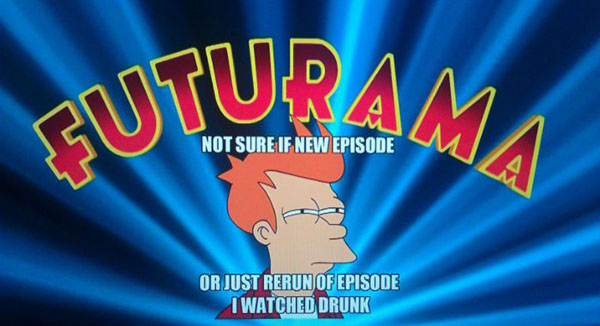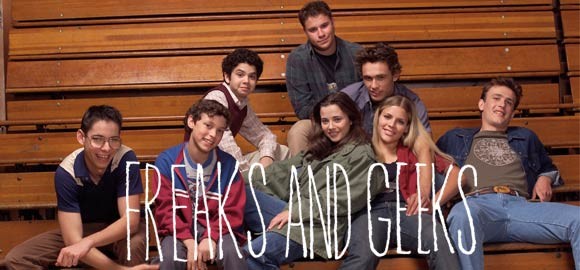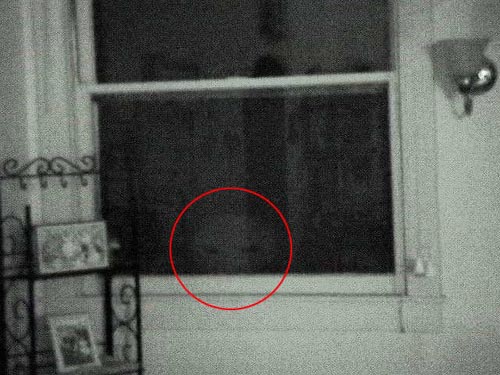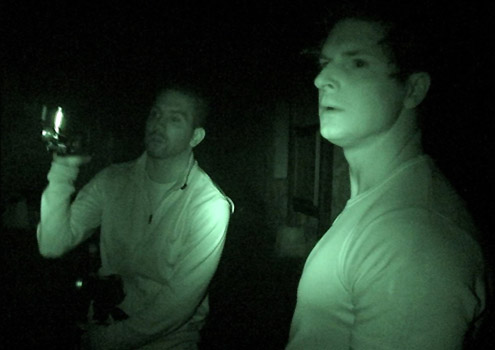
Here’s another high concept tv show, a format that seems to be all the rage since Lost aired. A mystery is introduced in episode one and the entire season (or series) is about unraveling the puzzle. Overall I think this is a good trend. It’s just that I have so little faith in network tv to deliver anything with any cohesive long-term fulfillment anymore. Even the mighty X-Files sputtered at the end.
The premise of Awake: Detective Britten was in a car accident with his wife and son and woke up to a world where one of them was dead, but when he went to sleep he woke up in another world where the other family member had died instead. So he’s now a man living two lives, both dealing with family tragedy. To keep things straight, Britten wears a red bracelet in the world that his wife is alive in and a green bracelet in the world that he lives with his son. Each reality has its own therapist that he sees who tries to convince him that theirs is the true world and the other is a dream. It’s a compelling personal story that provides a neat backdrop for weekly episodes.
I started watching the series for the novelty of it and was mildly amused. At the beginning it basically boiled down to two police procedurals in one episode, where clues from one world inform on the case in the other. But as the season progressed I became impressed at some of the interesting hooks that pulled between Britten’s alternate families. Awake is well constructed and many of the scenes are expertly driven by music and poignant emotional notes.
Early on it was evident that the show was being canceled and, as a fan of narrative, this was really the best thing that could happen to the plotline. A chance to tell an isolated story in a single series of episodes, without money or ratings dragging the plot one way or the other, or stretching any true climax across years. Instead, when the end starts rolling near the season’s final episodes the protagonist really rushes ahead to get things done. And again, I was impressed with some of the choices.
So then, what a letdown the finale is. Spoilers are necessarily ahead, so if the above sounds intriguing at all I would still recommend watching all the episodes. Just come back here for analysis after you finish the finale.
According to the series creator, Kyle Killen, this is the way he always intended the first season of Awake to end, whether or not the series would be renewed. He specifically references the debacle that was Lost, which had a meandering and blurry story, and said that tv execs these days "make sure that you have flagpoles that you’re heading toward" to ensure that audiences are given a satisfying payoff.
In the Awake season finale, one of the two worlds is starting to show signs that it is a dream and Detective Britten finally begins to accept this fact and says goodbye to a loved one. The whole season centered around this concept of ‘which world is real?’ and just flipping a coin and coming up with a result wasn’t going to be a satisfying enough conclusion. No, a savvy modern audience will need a grander twist, and it wasn’t hard to see that something was coming.
The worst thing you can ever do in a movie or tv show is have the main character wake up at the end and realize the whole thing was a dream. And that’s what the series creator says absolutely did not happen, and he doesn’t understand how anybody could take that interpretation away from the finale. Well, maybe it’s because THAT’S WHAT TOTALLY FUCKING HAPPENED ONSCREEN.
When you say things like, "I’ve seen some really interesting [theories] and I wouldn’t say that anyone is wrong" then you are admitting that the storyline doesn’t necessarily make sense. You are essentially saying that, ‘hey, if you enjoyed it, then whatever you think happened is what happened’. And that’s a giant cop out. Maybe that type of narrative has a place in poetry or even artsy films but getting cute with the script explanation in this case doesn’t fly. To me it’s a matter of function following form. If a movie is weird and dreamlike, like Lost Highway, then you can expect a fairly ambiguous ending. Awake is the opposite- it is literally about a police detective piecing together clues to solve a mystery, and audiences expect and demand something more substantial.
But the discussion gets deeper as the creator is interviewed after the final airing. Killen reveals that one of the worlds is indeed fake, and as the protagonist is just starting to accept the truth he regresses into realizing he could make up his own dream, and the ‘happy ending’ world is an even bigger and deeper lie that he chooses to immerse himself in. In other words, in a series which involves a heavy dose of psychosis and has two therapists telling the detective that he is crazy and can’t accept the truth, one of them is right. The ‘red’ world gets all crazy and is the obvious dream, Britten realizes ‘green’ is the reality, but then decides that he enjoyed his hallucinatory fabrications even more and creates a world where both his wife and son are alive. And I suppose overall I can accept this ending. It doesn’t fill in all the holes but it serves as an unexpected direction and completes a tragic arc. If Britten’s psyche is fractured even more in the end, well, we can’t say we didn’t see it coming.
But then Killen plays noncommittal and says the reverse is also possible.
"In “red,” he’s in a place where he’s in prison and the person that ultimately destroyed his family is going to get away with it, so if anything were to cause your psyche to fracture and imagine a world where you do win, where you do catch the person…. I think it would be the horrible pressure of realizing you might be stuck in prison. That’s in some ways a just as compelling argument for “red.”"
Indeed, all the craziness in the red world that apparently reveals it as a dream world only happens right as Britten is about to fall asleep. It *could* have been a dream (except, of course, that Britten has never dreamed in this fashion over the entire series). But here’s the thing. Am I the only one here who is calling bullshit on the whole ‘one real, one fake’ scenario? If clues in each world helped him solve cases in the other, then either both or neither are dreams, right? This is classically where tv series, as opposed to films, fail to deliver on their mysteries. Over the course of a season it is exceedingly easy to throw in a twist that can’t be explained- call it a smoke monster (after Lost’s famous flub). Movies, on the other hand, are edited much more tightly *in general*, although I feel compelled to say that most horror movies still fail to deliver satisfying resolutions to all the creepy events they present us with.
In the end, Killen emphasizes that one world was real and the other was a dream and this series was about a man who couldn’t cope with reality. And I respect that straight-forward decision, but the creator goes on to say something disturbing. He admits that he left the door open for either one to be the reality, meaning he was content to let a few seasons drag on before finally choosing which direction to go. And here is where the lazy writing angle comes in, because without a defined world, any clues dropped during the episodes along the way become meaningless. Without a true reality, nothing needs to make sense, and years later when the show would wrap up, the audience is sure to be left with dangling questions.
Anyway, it always boggles my mind that creators of fiction never work these things out more than this. Maybe artsy folk don’t like being tied down by constraints but I’m a programmer by trade. I like making sense of things, breaking them down into logical parts and seeing how they really tie together. I like working a story backwards from its core elements and agreeing that it could plausibly play out as the writers present. To me that’s believability, and that’s more gripping than any number of inane plot twists you can throw at me.





 This UK show became a minor hit in the US when it debuted on Hulu. Misfits is about a small group of maladjusted young people brought together (and stuck in) community service. Oh yeah, and they all have super powers. This kind of great high concept paves the way for hilarious moments that never take themselves too seriously- the show often self referentially makes fun of itself. The short seasons are well thought out, tightly written, and endlessly amusing. Viewers are kept guessing simply because the events are too zany to predict. And that’s why this show is so great- it’s truly fun to watch and remains lighthearted but doesn’t use that as an excuse to cheap out on the plot.
This UK show became a minor hit in the US when it debuted on Hulu. Misfits is about a small group of maladjusted young people brought together (and stuck in) community service. Oh yeah, and they all have super powers. This kind of great high concept paves the way for hilarious moments that never take themselves too seriously- the show often self referentially makes fun of itself. The short seasons are well thought out, tightly written, and endlessly amusing. Viewers are kept guessing simply because the events are too zany to predict. And that’s why this show is so great- it’s truly fun to watch and remains lighthearted but doesn’t use that as an excuse to cheap out on the plot.

 As far as action dramas go on tv these days, you’d be hard pressed to find much better than Sons of Anarchy. The premise is simple: a motorcycle gang deals with conflicts within and without as they trade in firearms and otherwise try to eke out a living in the small California town they control. The backstory that fleshes out the series has been well thought out from the start. All the characters are believable and there are real consequences to their actions. Most tv shows try to string out plot elements across a season to get the most entertainment value out of them, and while Sons is not completely innocent of this artifact of the episodic format, it does well to move important events along. Each season has a clear theme and they all tie together.
As far as action dramas go on tv these days, you’d be hard pressed to find much better than Sons of Anarchy. The premise is simple: a motorcycle gang deals with conflicts within and without as they trade in firearms and otherwise try to eke out a living in the small California town they control. The backstory that fleshes out the series has been well thought out from the start. All the characters are believable and there are real consequences to their actions. Most tv shows try to string out plot elements across a season to get the most entertainment value out of them, and while Sons is not completely innocent of this artifact of the episodic format, it does well to move important events along. Each season has a clear theme and they all tie together.
 I used to enjoy watching this series a lot. I always felt like the American version of The Office copied all the right things from the UK program- the uncomfortable awkwardness when the boss tells a joke, the sideways glances at the camera, the pop culture references. All too often remakes don’t treat the original source material properly but this was a conversion that was done right, thanks in no small part to the lead role played by Steve Carell.
I used to enjoy watching this series a lot. I always felt like the American version of The Office copied all the right things from the UK program- the uncomfortable awkwardness when the boss tells a joke, the sideways glances at the camera, the pop culture references. All too often remakes don’t treat the original source material properly but this was a conversion that was done right, thanks in no small part to the lead role played by Steve Carell.


